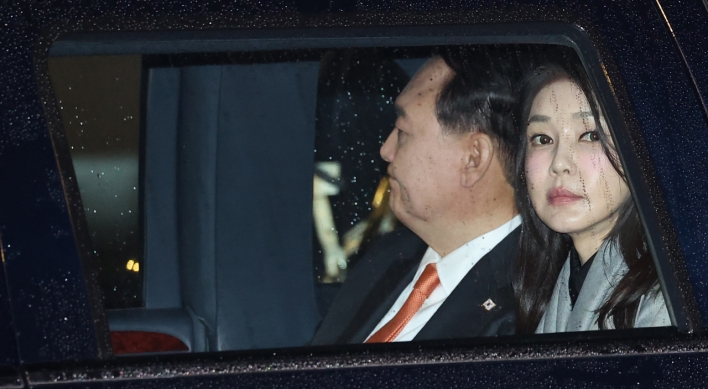More than 70,000 South Koreans studied at U.S. universities and colleges last year, representing the third-largest number of international students here, according to a formal report issued Monday.
The total number of foreign students in U.S. higher education increased 7 percent to a record high of 819,644 in the 2012/13 academic year from the previous season, said the Institute of International Education (IIE) and the U.S. Department of State's annual "Open Doors" report.
"Students from the top three places of origin -- China, India and South Korea -- now represent 49 percent of the total number of international students in the United States, with the number from China increasing, and the numbers from India and South Korea declining," it said.
South Korean students totaled 70,627, down 2.3 percent from the 2011/12 academic year.
Peggy Blumenthal, senior counselor at the IIE, said the decline seems to be attributable to improvements in South Korea's higher education system and the rise of Chinese universities as an alternative.
Meanwhile, U.S. students studying abroad jumped by three percent to an all-time high of more than 283,000, said the report.
The U.S. government took the increase in student exchanges to and from the U.S. positively.
"International education promotes the relationship building and knowledge exchange between people and communities in the United States and around the world that are necessary to solve global challenges," Assistant Secretary of State for Educational and Cultural Affairs Evan Ryan said.
Despite the U.S. government's efforts to send more students to China, however, U.S. students were found to be still favoring European nations.
The number of U.S. students in China increased only 2 percent to 14,887.
In 2010, the State Department launched a program, named "100,000 Strong," aimed at sending 100,000 American students to China over a four-year period. (Yonhap News)
The total number of foreign students in U.S. higher education increased 7 percent to a record high of 819,644 in the 2012/13 academic year from the previous season, said the Institute of International Education (IIE) and the U.S. Department of State's annual "Open Doors" report.
"Students from the top three places of origin -- China, India and South Korea -- now represent 49 percent of the total number of international students in the United States, with the number from China increasing, and the numbers from India and South Korea declining," it said.
South Korean students totaled 70,627, down 2.3 percent from the 2011/12 academic year.
Peggy Blumenthal, senior counselor at the IIE, said the decline seems to be attributable to improvements in South Korea's higher education system and the rise of Chinese universities as an alternative.
Meanwhile, U.S. students studying abroad jumped by three percent to an all-time high of more than 283,000, said the report.
The U.S. government took the increase in student exchanges to and from the U.S. positively.
"International education promotes the relationship building and knowledge exchange between people and communities in the United States and around the world that are necessary to solve global challenges," Assistant Secretary of State for Educational and Cultural Affairs Evan Ryan said.
Despite the U.S. government's efforts to send more students to China, however, U.S. students were found to be still favoring European nations.
The number of U.S. students in China increased only 2 percent to 14,887.
In 2010, the State Department launched a program, named "100,000 Strong," aimed at sending 100,000 American students to China over a four-year period. (Yonhap News)



![[AtoZ Korean Mind] Does your job define who you are? Should it?](http://res.heraldm.com/phpwas/restmb_idxmake.php?idx=644&simg=/content/image/2024/05/06/20240506050099_0.jpg&u=)














![[K-pop's dilemma] Is Hybe-Ador conflict a case of growing pains?](http://res.heraldm.com/phpwas/restmb_idxmake.php?idx=642&simg=/content/image/2024/05/07/20240507050746_0.jpg&u=)